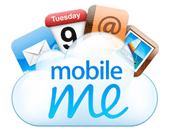Apple on Monday, almost as an afterthought, announced it was working on browser-based versions of its iWork productivity applications, a move one analyst said challenged Microsoft’s Office behemoth.
For a few minutes during Monday’s keynote of Apple’s Worldwide Developers Conference, Roger Rosner, who heads iWork development, spun through a quick demonstration of iWork for iCloud, a second attempt by Apple to move its Pages word processor, Numbers spreadsheet, and Keynote presentation maker into the Internet age.
That first attempt, dubbed iWork.com, ended miserably last July, more than three years after its launch, when Apple pulled the plug. iWork.com was intended to complement the locally installed suite by the same name, but offered no Web-based document creation or editing, and instead made do with document viewing, downloading, and commenting.
iWork for iCloud, on the other hand, is to be a full-featured trio of applications that run in a browser on either OS X or Windows, and allow document creation and editing on all a user’s devices. They are, essentially, Pages, Numbers and Keynote ported to the Web.
Those apps support just three browsers in the beta available as of Monday to iOS and OS X developers: Apple’s own Safari, Google’s Chrome and Microsoft’s Internet Explorer (IE). Mozilla’s Firefox or Opera Software’s Opera are not supported.
But the fact that it runs on IE at all—or Chrome for that matter—marks the first time Apple has offered iWork of any kind on Windows. That was also apparent when Rosner proclaimed that iWork for iCloud could edit existing Microsoft Office documents created by that suite’s Word, Excel and PowerPoint.
“We know we live in a world of Microsoft Office documents,” said Rosner, before demonstrating how the in-browser Pages opened Word documents and saved them in that same format.
Apple's motives?
Ezra Gottheil, an analyst with Technology Business Research, noting the cross-platform capabilities of iWork for iCloud, saw Apple’s online maneuver as a combination of catch-up and the realization that productivity software now requires an online component to stay competitive.
“This is a recognition that productivity apps have to be online,” said Gottheil. Local-only applications, whether iWork on OS X and iOS, or Office on Windows and OS X, isn’t enough. “Apple’s saying [iWork for iCloud] validates their platforms and keeps them up-to-date.”
But most of all, iWork for iCloud meshes with Apple’s long-running strategy of trying to tempt consumers and small businesses now in the Windows camp to defect to OS X, iOS, or both. “I see this as building a bridge from Windows to the Apple platforms,” said Gottheil of the entry into Microsoft’s turf, the first such move since Safari for Windows, which launched in 2007 but was unceremoniously dumped last year.
iWork for iCloud won’t reach public beta until “later in the year,” Rosner said, but he didn’t breathe a word about what, if anything, the online apps would cost.
Gottheil said Apple would not look at iWork for iCloud as a revenue generator, not a direct one anyway, since the competition, Google Docs and Microsoft’s Office Web Apps, are free. If Apple, as Gottheil expected, offers iWork for iCloud free of charge, the revenue opportunity would be in sales of its devices, as iCloud is pitched as a side benefit of owning an iPhone, iPad or Mac.
Why this move by Apple now?
So why is Apple bothering, especially after many of its online efforts have been busts, like the little-used Ping, a social network add-on to iTunes, and MobileMe, whose 2008 debut was a disaster? Gottheil, who has regularly criticized Apple for poorly executed online initiatives or failures to keep up with rivals in Internet services, said it could be a defensive-offense strategy.
“All of the platforms, Apple, Google, Microsoft, are in constant conflict. They’re all trying to build their own on-ramps [to customers] while putting road blocks on [rivals’],” Gottheil said.
In other words, if Microsoft touts Office Web Apps as the solution for iPad owners who want productivity tools—something that the company’s CEO Steve Ballmer did last year—iWork for iCloud could be seen as Apple’s tit-for-tat response, both trying to hold on to their own customers and entice some of the opposition’s.
There are other ways of reading the tea leaves. With Microsoft’s hesitation to pull the trigger on native Office apps for the iPad, perhaps Apple saw an opening to further lock its customers—Gottheil described it as “putting road blocks on your own off-ramp”—into its own ecosystem before Microsoft made its move.
But it was Microsoft’s mixed feelings about its online apps that Gottheil made central to his argument that, notwithstanding the seemingly insurmountable odds of denting its Office business, iWork for iCloud was a legitimate threat to Microsoft.
“Microsoft seems very ambivalent about Office on the Web,” Gottheil said, pointing out that the company has done little to publicize Office Web Apps or that they’re free to use. The ambivalence should not be a shock, since Microsoft loses an Office sale for every customer who realizes they can get by with the limited-function, limited-feature online versions of Word, Excel and PowerPoint.
But with PC sales lagging, tablets more than taking up the slack, and Microsoft’s mobile strategy just getting off the ground, Apple has an opportunity. It can bang the drum about a free iWork for iCloud without risking much, since sales of iWork on OS X and iOS are a puny fraction of its revenue. Microsoft may hesitate to follow simply because Office provides such a big chunk of total revenue, 31% in the first quarter.
“Microsoft has to be worried about Office, not its enterprise [customers] but those who just buy it to be able to read Office file formats and create small documents,” said Gottheil. “iWork for iCloud is a threat there,” he maintained.





